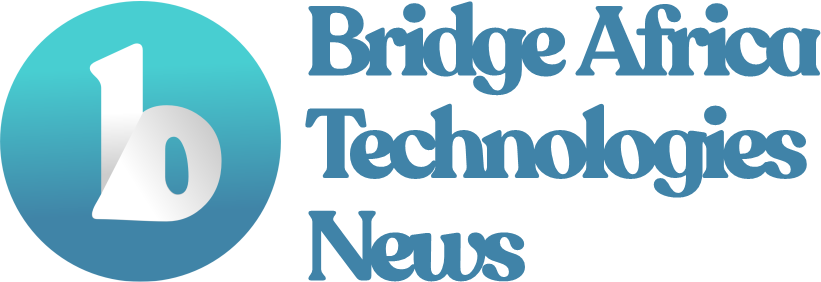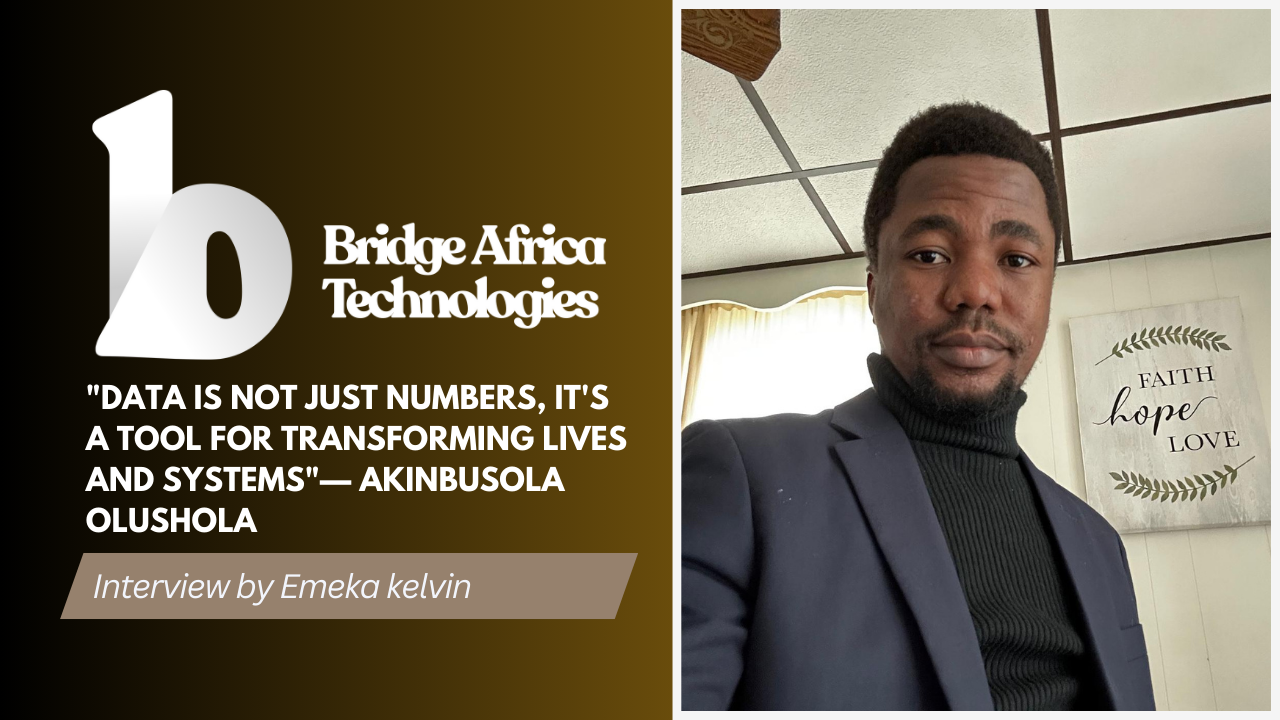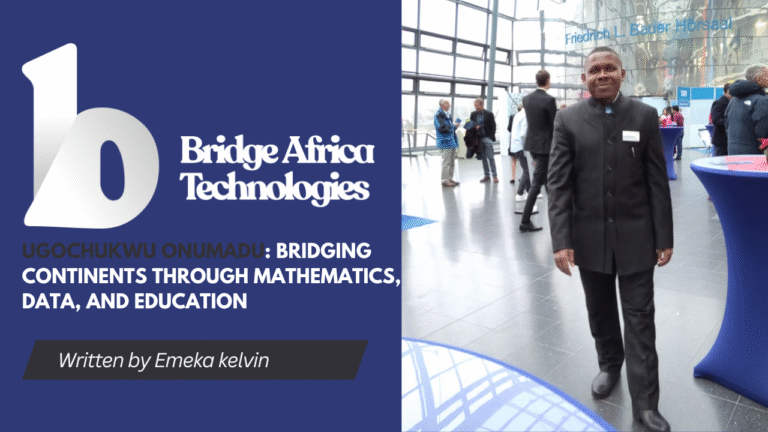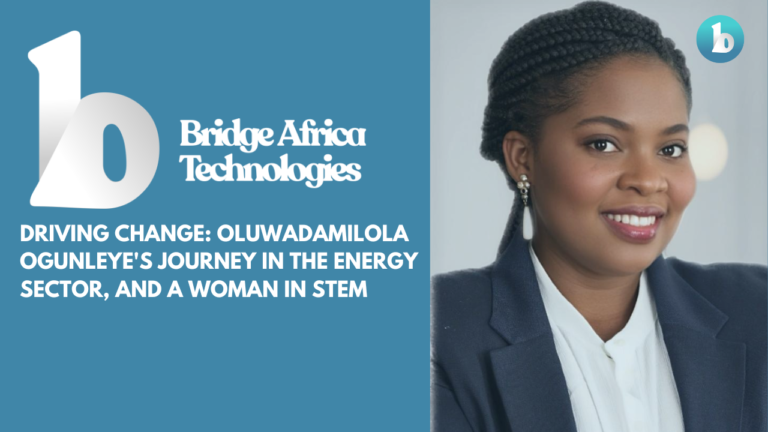Akinbusola Olushola is a highly accomplished data professional with a deep-seated passion for leveraging data science to solve complex problems across various industries, including banking, IT services, and healthcare analytics. His career journey has been defined by a relentless pursuit of excellence and innovation, making him a highly sought-after expert in transforming raw data into valuable, actionable insights. Currently, Akinbusola holds the role of Information Systems Analyst at the Illinois Department of Healthcare and Family Services, where he leads efforts to optimize systems, enhance Medicaid eligibility processes, and drive cutting-edge data-driven solutions that streamline healthcare services for underserved populations.
Akinbusola’s academic foundation is equally impressive. He earned a Master of Science in Applied Mathematics, with a specialization in Data Science, from Indiana University of Pennsylvania. Throughout his academic journey, he demonstrated exceptional skills in programming languages such as Python, R, and SQL, alongside a solid understanding of Machine Learning techniques. His expertise has allowed him to lead data science initiatives that have reshaped decision-making processes, helping organizations enhance efficiency and optimize performance.
Before his current role, Akinbusola honed his analytical abilities in prominent financial institutions like Polaris Bank and Coronation Merchant Bank, where he was instrumental in developing and deploying data-driven strategies. At Polaris Bank, he improved business process efficiency by 25% through the use of advanced data analytics and machine learning techniques. As a Reconciliation Analyst at Coronation Merchant Bank, he designed a reconciliation template that increased accuracy by 40% and reduced processing time by 30%, significantly improving operational outcomes. His contributions ensured compliance and minimized risks by identifying and rectifying discrepancies in high-stakes financial transactions, further reinforcing his value as a data expert.
In addition to his work in the private sector, Akinbusola has also demonstrated a commitment to public health, as evidenced by his involvement in the Wastewater Surveillance for COVID-19 project. This groundbreaking initiative utilized data analytics to track and monitor public health trends, helping communities mitigate the spread of the virus. His work in this project reflects his dedication to using data as a tool for improving societal well-being.
Akinbusola’s achievements have not gone unnoticed. In 2024, he was honored with the prestigious BAT Award of Excellence, recognizing his outstanding contributions to data science and his ability to deliver impactful solutions. His technical proficiency in tools like Tableau, Power BI, and Jupyter Notebook, along with his experience in data visualization, report generation, and machine learning, has positioned him as a leader in the field.
Looking to the future, Akinbusola aims to continue expanding the boundaries of data science, particularly at the intersection of public health and technology. His goal is to further harness the power of data to drive societal change, whether through optimizing healthcare systems or developing innovative solutions that improve the quality of life for communities worldwide. With a unique combination of technical expertise, industry experience, and a passion for making a difference, Akinbusola is poised to continue making significant contributions to the world of data science for years to come.

BAT Most Influential People In Nigeria 2024 -Awards
In this insightful interview, we sit down with Akinbusola Olushola, a highly accomplished data professional whose work spans banking, IT services, and healthcare analytics. Currently an Information Systems Analyst at the Illinois Department of Healthcare and Family Services, Akinbusola shares his journey, achievements, and future aspirations. Join us as we delve into his expertise, challenges, and vision for the future of data-driven solutions.
A Round Table chat with One Of The Industry Expert — Akinbusola Olushola
1. Can you share a bit about your early professional journey and how you developed an interest in data science and analytics?
Akinbusola: “I began my career with a strong passion for technology, which was sparked during my undergraduate studies in Computer Science at Crawford University. Over time, I realized that I was particularly drawn to the analytical aspects of the field—how data could drive decision-making and transform businesses. This realization led me to pursue a Master’s degree in Applied Mathematics with a specialization in Data Science at Indiana University of Pennsylvania. My early roles in banking and finance helped me understand the value of data in optimizing processes and mitigating risks. That exposure solidified my desire to use data science as a tool for problem-solving.”
2. You’ve worked across different industries, including banking, IT services, and healthcare. How have these varied experiences shaped your approach to data analysis?
Akinbusola: “Each industry has given me a unique perspective on how data can be leveraged. In banking, for example, the focus was on efficiency, compliance, and reducing operational risks. I learned how to build systems that ensured accuracy in financial transactions and reconciliations. When I transitioned to IT services and healthcare analytics, I saw how data could be used to optimize processes and improve public services. In healthcare, it became more about using data to solve problems that impact people’s lives directly, such as improving Medicaid eligibility systems. These diverse experiences have taught me to tailor my approach based on the industry’s specific needs while always maintaining a focus on delivering actionable insights.”
3. As a professional skilled in Python, R, SQL, and Machine Learning, how do you approach problem-solving using these tools? Could you provide an example?
Akinbusola: “My approach to problem-solving with these tools always begins with understanding the problem’s context—whether it’s a business process that needs optimization or a data model that needs refining. For example, at Polaris Bank, I employed Python and SQL to develop machine learning models that enhanced decision-making processes. We needed to increase the efficiency of certain operations by 25%, so I built a system that analyzed transaction data in real-time, allowing us to identify inefficiencies and correct them immediately. The flexibility of these tools allows me to customize solutions, whether for predictive modeling, data visualization, or analysis.”
4. Can you discuss a project that you’re particularly proud of, where your data analysis had a significant impact?
Akinbusola: “One project that stands out is my involvement in the Wastewater Surveillance for COVID-19 project. It was a unique experience where data analytics directly contributed to public health. I worked on analyzing data that monitored COVID-19 spread through wastewater surveillance, which helped detect early signs of outbreaks in different communities. This project not only demonstrated the power of data science in solving real-world problems but also gave me a deep sense of fulfillment knowing that our work contributed to public safety during a critical time.”
5. In your current role at the Illinois Department of Healthcare and Family Services, what have been the most significant challenges and how have you addressed them?
Akinbusola: “One of the most significant challenges has been optimizing the Medicaid eligibility process through the Integrated Eligibility System. The system is massive, and there are always areas where improvements are needed to ensure accuracy and speed in processing eligibility. I’ve addressed these challenges by focusing on data-driven solutions. For instance, I write SQL queries that analyze outcomes and flag potential issues before they escalate. Additionally, I’ve trained team members on using tools like the Modified Adjusted Gross Income (MAGI) rules engine, which has streamlined system operations. By continuously improving these processes, we’ve enhanced the overall efficiency of Medicaid eligibility handling.”
6. You’ve achieved several certifications, including Six Sigma Yellow Belt, Google Data Analytics, and Advanced Data Analytics. How have these certifications contributed to your professional growth?
Akinbusola: “These certifications have been invaluable in sharpening my skill set and broadening my understanding of various tools and methodologies. The Six Sigma certification, for example, taught me how to streamline processes and reduce inefficiencies, a skill I’ve used extensively in my banking and healthcare roles. The Google certifications have kept me up to date with the latest in data analytics and business intelligence, allowing me to deliver more precise and informed insights. Altogether, these certifications have enhanced my ability to solve complex problems, making me more versatile as a data professional.”
7. Data science is continuously evolving. How do you stay updated with the latest trends and advancements in the field?
Akinbusola: “I make a conscious effort to stay current by attending conferences, webinars, and workshops on data science and related technologies. Additionally, I am an avid reader of industry publications and participate in online communities where professionals share knowledge on the latest advancements. I also take advantage of continuous learning platforms like Coursera and LinkedIn Learning, which offer courses on emerging trends such as AI and Machine Learning. Staying updated is crucial because data science is an ever-evolving field, and it’s important to keep refining your skills.”
8. You were recently honored with the BAT Award of Excellence in 2024. Can you tell us more about this achievement and what it means to you?
Akinbusola: “Receiving the BAT Award of Excellence was a huge honor and a validation of my work in data science. It recognized my contributions to improving business processes and public services through data-driven solutions. For instance, my work in the healthcare sector, particularly in optimizing the Medicaid system, played a significant role in the recognition. The award serves as a motivation to continue pushing the boundaries of what data science can achieve, especially in areas like healthcare where data can have a real impact on people’s lives.”
9. What do you believe sets you apart from other data professionals in your field?
Akinbusola: “I think what sets me apart is my ability to adapt across industries while maintaining a focus on delivering actionable insights. Whether I’m working in finance, healthcare, or IT services, I tailor my solutions to the unique challenges of each industry. Additionally, my commitment to ongoing learning and my diverse skill set—ranging from technical expertise in Python and SQL to project management skills gained from my Professional Scrum Master certification—give me an edge. I also bring a blend of academic rigor and real-world experience, which allows me to tackle problems from multiple angles.”
10. How do you ensure that the data-driven solutions you develop are actionable and accessible to non-technical stakeholders?
Akinbusola: “Communication is key. I always aim to translate complex data findings into clear, actionable insights that non-technical stakeholders can understand and implement. Tools like Tableau and Power BI help me create visualizations that tell a compelling story about the data. In my current role, I frequently prepare reports and presentations that break down technical details into simple, decision-friendly formats. By ensuring that the end-users of the data—whether they’re managers, healthcare providers, or business executives—can understand and act on the insights, I bridge the gap between data science and business strategy.”
11. You’ve demonstrated leadership in several projects, such as your role in the Medicaid overhaul. What is your leadership style when managing a team or a project?
Akinbusola: “My leadership style is collaborative and hands-on. I believe in empowering my team by giving them the tools and knowledge they need to succeed. In projects like the Medicaid overhaul, I took a leadership role in both technical and training aspects, ensuring that everyone understood the goals and had the resources to achieve them. I also believe in continuous feedback loops—both giving and receiving feedback—to ensure that the team is always improving and learning. Ultimately, I lead by example, staying involved in the technical work while guiding the team toward successful outcomes.”
12. How has winning the BAT Award influenced your professional trajectory and how do you plan to build on this recognition in the coming years?
Akinbusola: “Winning the BAT Award has been a major milestone in my career, reinforcing my belief in the importance of data science as a tool for societal improvement. The recognition has provided me with new opportunities to collaborate with thought leaders in the field, and it’s inspired me to continue pushing the boundaries of data application in public health and beyond. Moving forward, I plan to use this platform to advocate for more data-driven initiatives, particularly in healthcare, and to mentor aspiring data professionals who are looking to make an impact in their industries.”
13. Looking ahead, what are your future goals, and how do you plan to continue growing professionally?
Akinbusola: “My future goals revolve around deepening my expertise in public health data analytics and expanding the application of AI and Machine Learning in healthcare systems. I want to continue developing solutions that make a tangible difference in people’s lives, particularly in underrepresented communities. I’m also interested in pursuing further research and contributing to academic publications, as well as mentoring the next generation of data professionals. As data science evolves, I aim to remain at the forefront of innovation, continuously learning and applying cutting-edge techniques to solve new challenges.”
Conclusion:
As our interview with Akinbusola Olushola draws to a close, it’s clear that his journey is one marked by a relentless pursuit of excellence, innovation, and impact. From his early days in banking, where he honed his skills in data analysis and process optimization, to his current role as an Information Systems Analyst at the Illinois Department of Healthcare and Family Services, Akinbusola has demonstrated a remarkable ability to transform complex data into actionable insights that drive real-world solutions. His technical expertise in Python, R, SQL, and Machine Learning, coupled with his leadership in optimizing Medicaid systems, highlights both his breadth of knowledge and his commitment to improving public services.
The interview also shined a light on Akinbusola’s significant accomplishments, such as his contributions to the Wastewater Surveillance for COVID-19 project, and most notably, his recent recognition at the BAT Annual Awards 2024. This prestigious honor from Bridge Africa Technologies celebrates his role as one of the Nigerians excelling in his field abroad. His work not only elevates him within the global data science community but also showcases the talent and potential that Nigeria produces on the world stage.
Akinbusola’s future aspirations, particularly in advancing healthcare analytics and mentoring the next generation of data professionals, reflect his vision to continue making impactful contributions both locally and globally. His story is an inspiring reminder of how data science, when wielded by passionate and skilled individuals like Akinbusola, can make a profound difference in improving systems and lives.
In closing, Akinbusola Olushola stands as a shining example of excellence in data science, and his work is a testament to the value of perseverance, innovation, and leadership. As he continues to break new ground in his field, there is no doubt that his contributions will leave an enduring legacy not only in the Nigerian community but across the world.




